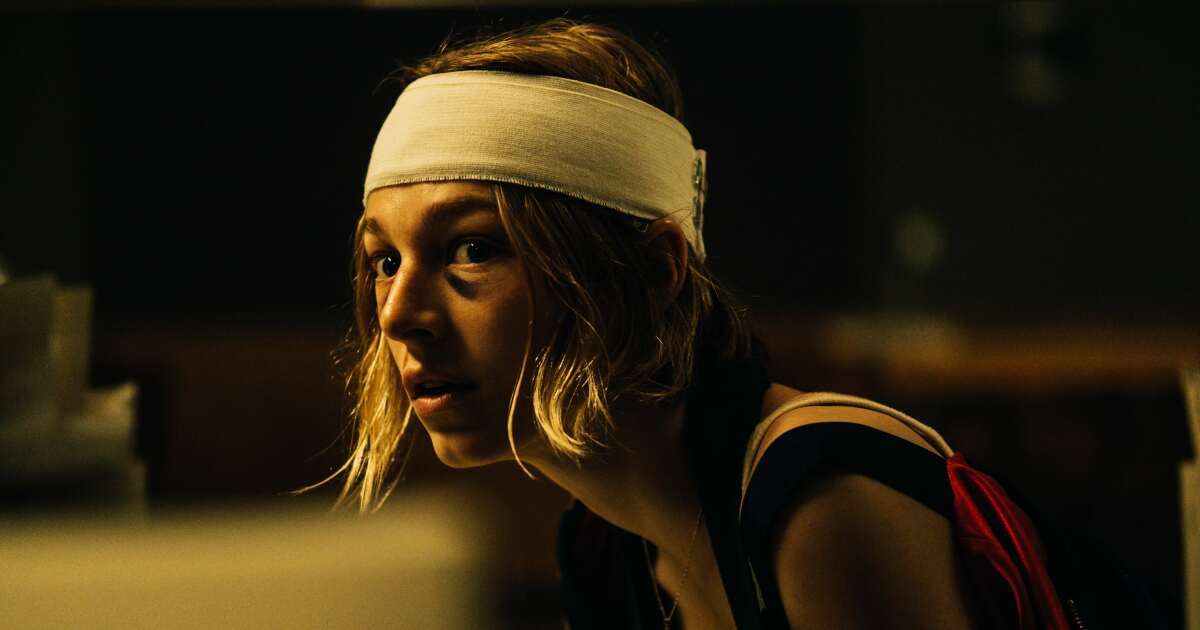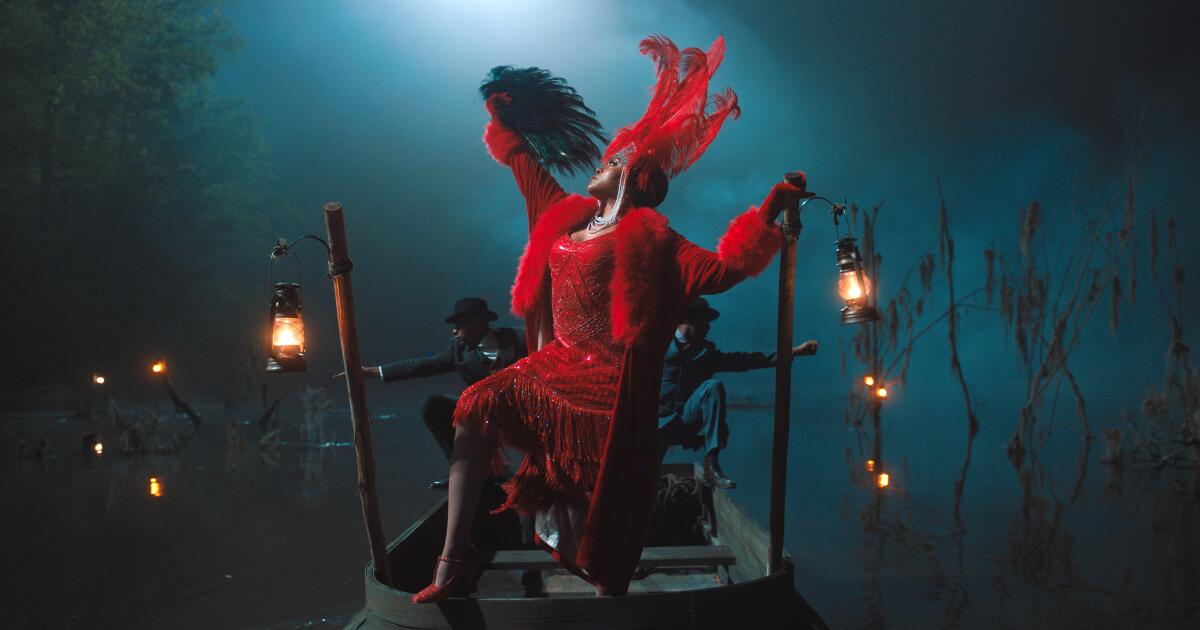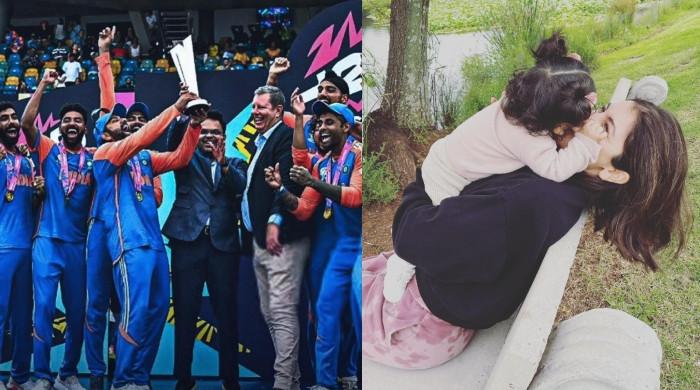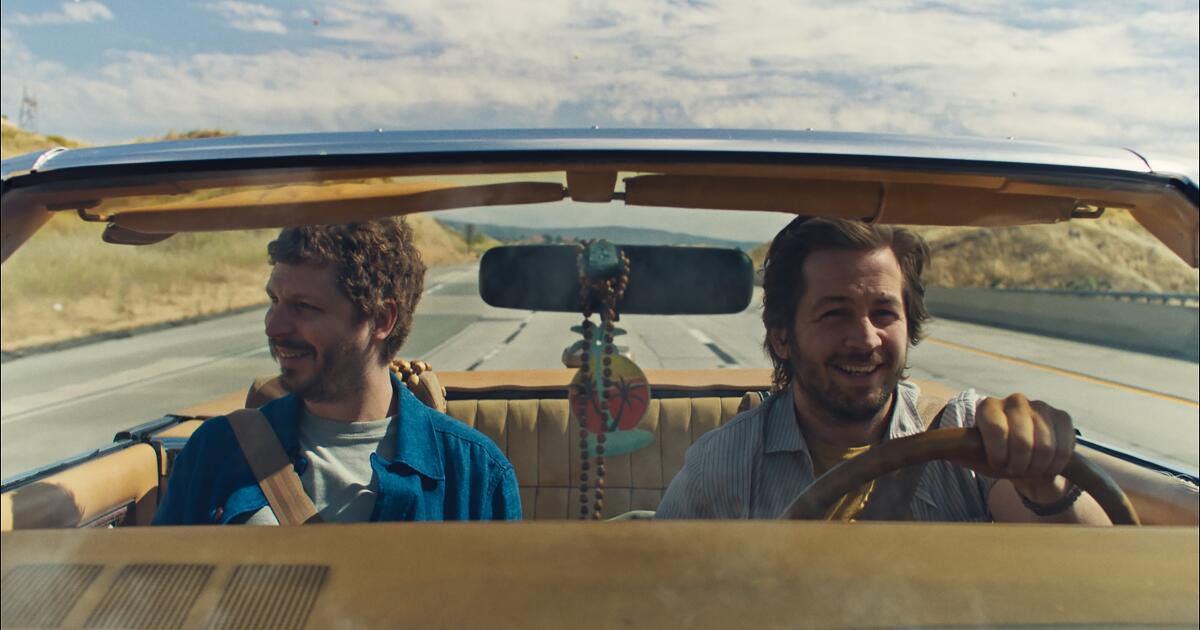Tilman Singer’s “Cuckoo” is a horror film unlike anything you’ve seen before, yet it pays open homage to its predecessors in the genre. The German writer-director gleefully blends tones, acting styles, mythology, music, a reverence for the natural world and contemporary allegory into unpredictable chaos, from which emerges the most fantastical and chilling terror. You may not fully understand what’s going on in “Cuckoo,” but there’s no denying how it makes you feel: shocked, unsettled, psychically scarred with unforgettable images and sensations, which is how every good piece of horror should leave its audience.
Singer makes the audience an active, even guilty, participant in “Cuckoo,” whose title is a nod to another famous avian-themed horror film by Alfred Hitchcock. At one point, co-star Dan Stevens breaks the fourth wall, stares directly into the lens, speaks to a character on the other side of a surveillance camera, but essentially speaks to us, the audience, reminding us how wonderful it is to have been able to witness the terrible events that have unfolded. It’s similar to that moment in “The Birds” when a character looks into the camera and declares, “I think you’re the cause of all this.”
Dan Stevens in the movie “Cuckoo”.
(NEON)
That participatory knowledge is imbued in the cinematography itself, executed by Paul Faltz on 35mm with a gaze that alternates between grim dread and vaporous fantasy. The prowling camera makes connections, showing us where to look, sneaking up on our heroine, Gretchen (Hunter Schafer), when she least expects it. She’s a moody American teenager who’s been dragged into the Bavarian Alps with her father, Luis (Marton Csokas), stepmother Beth (Jessica Henwick), and young half-sister Alma (Mila Lieu) following the death of her mother. Her parents are there to plan a new resort for one Herr König (Stevens) and Gretchen gets a job at their current place, a rundown, retro mountain hotel where strange things happen to young women with disturbing frequency.
Gretchen is a refreshing sort of horror “final girl” – she’s immediately suspicious of what’s going on around her and tries to leave as quickly as possible. On her bike at night, she’s chased by a screaming woman, and when her fears are allayed, she attempts to hitchhike to Paris with attractive hotel guest Ed (Àstrid Bergès-Frisbey). But Gretchen is caught in a strange vicious cycle, unable to escape this place and increasingly battered in the process. She escapes a car crash and spends the rest of the film bandaged, bruised and broken, eventually coming to terms with the fact that she’ll have to learn what’s going on here in order to break free of it.
With the prevalence of vomiting young women, female figures running through the woods, and Herr König’s suave lasciviousness, it all becomes clear that the nefarious goings-on in this town are all about the control of women’s bodies, even if the true nature of these circumstances remains somewhat mysterious after all is said and done. (Singer never spells it all out in “Cuckoo,” which is just as well.) But the contemporary allegory of patriarchal control over reproduction pulses throughout the film, even as the film remains open to multiple readings.
That social relevance keeps us somewhat tethered to reality, as do the multiple cinematic references, from Westerns to Psycho, that allow Cuckoo to play out in all its European fairy-tale weirdness. Schaefer gives her best performance to date, and the cast around her is distinct and strange in its own way. At times, it feels like each actor is in a different movie, though the varied tones come together in eerie sound design and textured cinematography to create an incredibly captivating cinematic experience. Singer proves himself a mad scientist of celluloid sensation, creating a hybrid monster of influences, images, sounds and emotions that you won’t soon forget.
Katie Walsh is a film critic for the Tribune News Service.
'Cuckoo'
In English, German and American Sign Language, with subtitles.
Classification: R, for violence, bloody images, language and brief teen drug use
Duration: 1 hour, 42 minutes
Playing: In wide release












